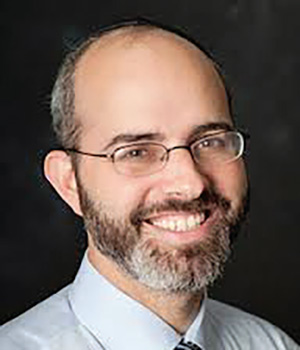
May these words of Torah be a merit le’iluy nishmat Menachem Mendel ben Harav Yoel David Balk, a”h.
This week we learned Zevachim 84. These are some highlights.
You missed the minyan; should you go to the shul to daven?
Tzelach (Derushei Tzelach derush vav ot 8) derives from our Gemara that if you missed the minyan in shul you should still make an effort to pray in the shul. The prayer of an individual in a synagogue is better than the prayer of an individual in his home. Tzelach derives this mandate from the laws of sacrifices.
Our Gemara reveals that some korban pieces that were disqualified, but still placed on the altar, get reconsecrated by the altar. Other disqualified korban pieces are rejected entirely; even if they were placed on the altar they are to be removed and taken down. Where the disqualification occurred makes all the difference. If an animal was disqualified from being a kosher sacrifice before it even came to the holy realm, such as an animal that had been exchanged for a dog, if it is then slaughtered and its pieces placed on the altar, the pieces need to come down. If the sacrifice was disqualified in the sanctuary, such as pigul, a consecrated animal that was slaughtered with the declared intent that it would be consumed at the wrong time, if it is mistakenly placed on the altar it does not come down. The altar can reconsecrate that which first became disqualified in the sacred realm.
Prayer is like a sacrifice. Sacrifices are called avodah and prayer is called avodah shebalev (Ta’anit 2a). A distracted prayer, words of the siddur uttered while thinking of other matters, is like a sacrifice prepared with the declared intent to eat it at the wrong time. Such a prayer is not acceptable to Hashem. Our Gemara teaches that a sacrifice slaughtered with the declared intent to eat it at the wrong time gets reconsecrated, if it was placed on the altar. The same is therefore true about a prayer. The shul is like the altar. If you recite your prayer in shul, even if you were distracted while you uttered the prayer, the shul reconsecrates the prayer and makes it acceptable. On the other hand, if you would recite a prayer at home, there is no holiness to reconsecrate it. Such a prayer is a prayer disqualified before it even came to the holy realm. Tzelach concludes that learning from sacrifices we rule that you should always pray in shul. The holiness of the shul will render acceptable distracted prayers. Tzelach’s position is not universally accepted, but it is in accordance with the Code of Jewish Law.
Tur (Orach Chaim 90) writes, “A person should only pray in a shul with a minyan, as Rav Yochanan said, ‘A person’s prayer is only heard in shul,’ meaning in shul with a minyan.” Beit Yosef (s.v. lo) derives from the language of the Tur that prayer in shul with a minyan is meaningful, but if you missed the minyan there is no advantage to praying alone in shul over praying alone in your home. Rabbeinu Yonah (Brachot 8a s.v. eimatai) writes in the name of the Geonim that even if there is no minyan, you should pray in shul. Shul has special holiness because it is the place established and dedicated for communal prayer; prayers are best in the shul. Shulchan Aruch (Orach Chaim 90:9) rules like the Geonim and Rabbeinu Yonah: If you missed the minyan and you now need to daven by yourself, you should daven in shul.
Rav Yitzchok Zilberstein interprets a passage in the Talmud Yerushalmi (Brachot 5:1) as recording a dispute on this question. According to Rav Yochanan, it is best to daven in shul with the minyan. But if you missed the minyan you are better off davening alone at home, for then you will be able to concentrate better on your prayers. According to Rav Pinchas, Rav Avahu and Rav Yitzchok, it is always best to daven in shul; even if you missed the minyan you should daven in the shul (Mesivta, Chashukei Chemed).
By Rabbi Zev Reichman
Rabbi Zev Reichman teaches Daf Yomi in his shul, East Hill Synagogue.













